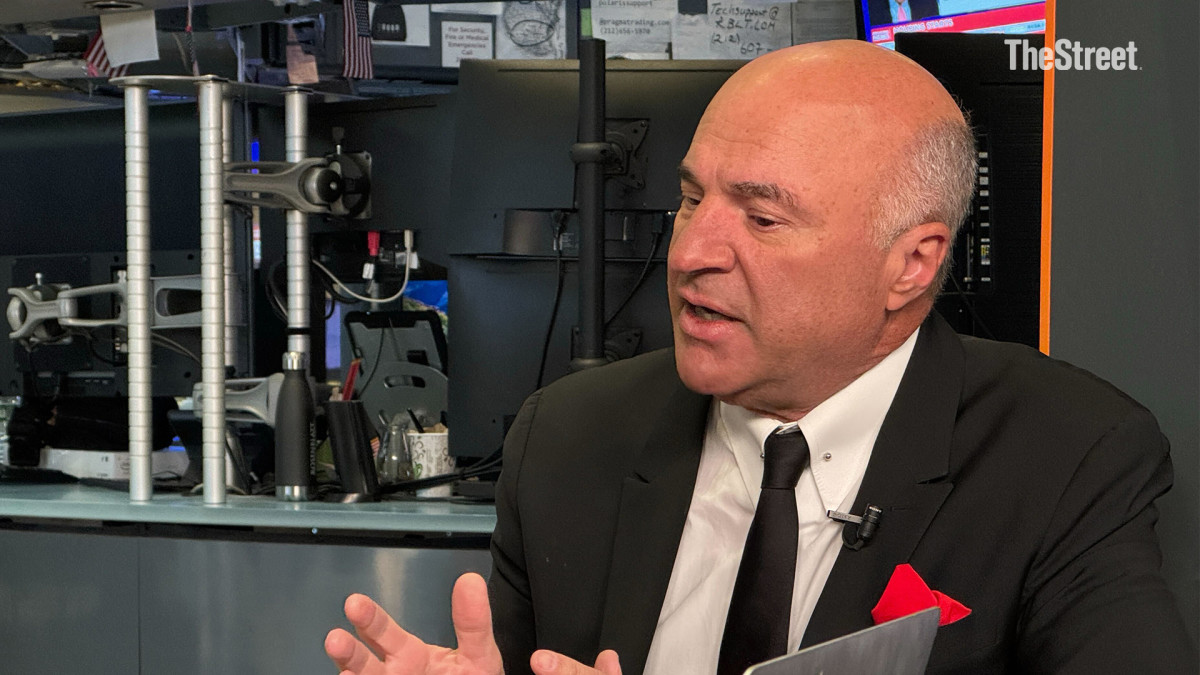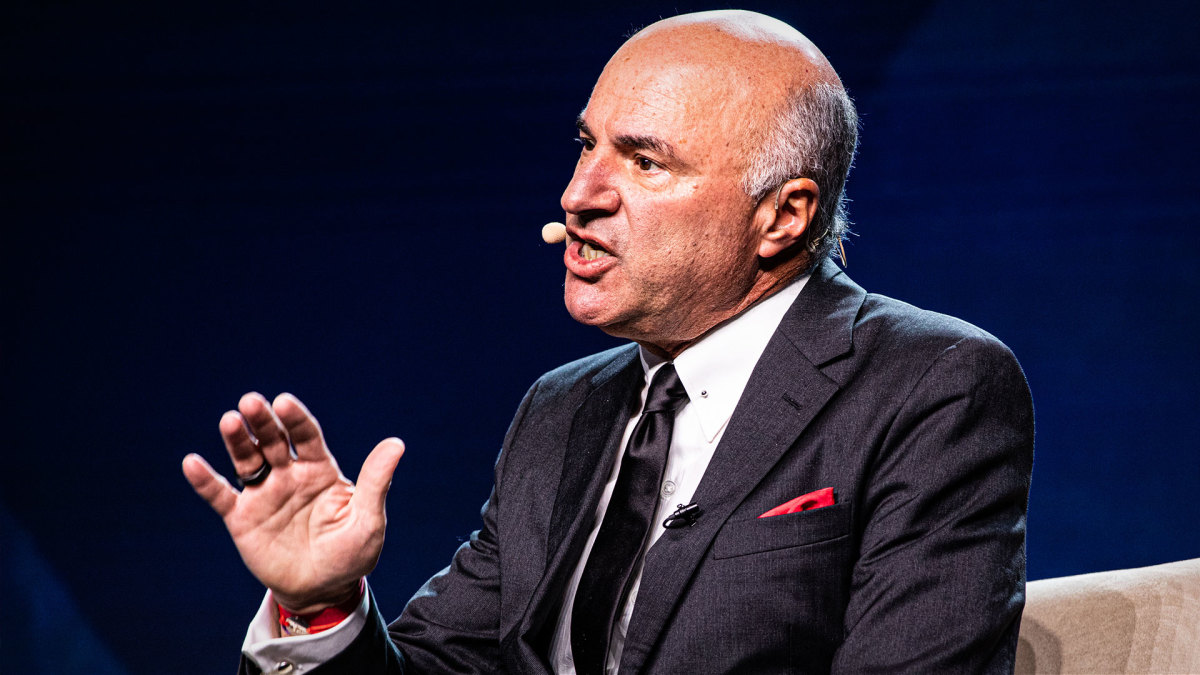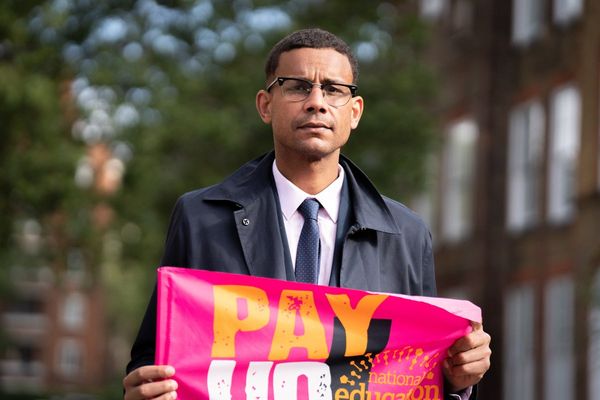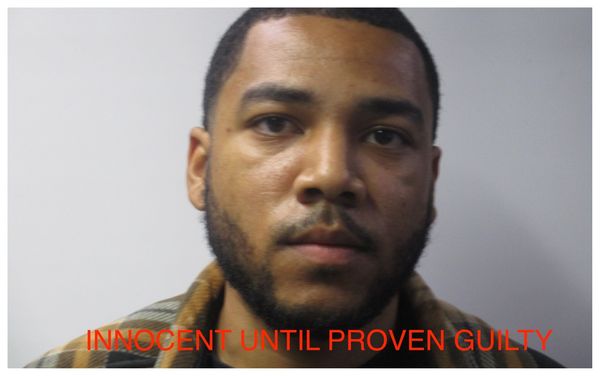
Kevin O'Leary, also known as Mr. Wonderful (a tongue-in-cheek take on his blunt personality) on ABC's (DIS) "Shark Tank," is a Canadian businessman.
He founded Softkey Software Products, a major factor in global education software in the 1980s and 1990s.
Related: Kevin O’Leary's bold TikTok plan — Shark Tank star reveals major changes he'd make
O'Leary developed a reputation for hostile takeover bids on rival companies. After changing his company's name to The Learning Company, it was acquired by Mattel (MAT) in 1999, and O'Leary was rewarded with millions of dollars in wealth.
The "Shark Tank" star recently sat down at the New York Stock Exchange to talk with TheStreet about entrepreneurship.
Sara Silverstein, TheStreet's Editor-In-Chief, asked O'Leary about why failing at a business effort can be a powerful learning experience.
"As we know, you're known for giving advice and helping small businesses grow," Silverstein said. "And you've said you like to work with entrepreneurs who have experienced failure. Why does failing make somebody a better leader or business creator?"
O'Leary responded with some words of experience.
"The sting of failure is extremely motivating, and usually you've learned your lesson," O'Leary said. "You know, most people don't know what they don't know, and they start out. So I always tell people, be an apprentice for a couple of years. If you love a sector, work for somebody in it and then break out on your own."
"But if I meet somebody that's had two failures in a row, I have no trouble investing in them again because I've done that too," he continued. "I mean, if you're an entrepreneur, you're going to fail. And the ability to just get up and keep competing is what really matters."
Kevin O'Leary discusses business peaks and valleys
O'Leary focused the conversation on expectations beginning entrepreneurs might have about getting it right the first time.
"I don't believe people can do it right out of the gate," he said. "It's very rare and it never happens quite that way. You may have a plan, but that doesn't mean you're not going to hit valleys and peaks."
"And I just prefer people that have been — call it tempered by the extreme," O'Leary added. "The extreme. A pressure of failure. It's very hard. Entrepreneurs that have been stung by it have learned a lot. And I appreciate that."

Valerie Plesch/Bloomberg via Getty Images
O'Leary talks about a big mistake people make
Silverstein followed up by asking O'Leary about mistakes he has seen over the years.
"Inability to pivot when facts change," O'Leary said. "And I see this: I have to swap out a lot of CEOs in what I do. I've got to fire a lot of people. It's very challenging to get your first million in sales. Really hard."
"When you get to five million, you've proven demand for your product beyond your uncles and sisters, you've got real market information about what you've created as a good or service," he continued. "There's a need for it because you're solving a problem. Great entrepreneurs find problems, then they solve them."
O'Leary addressed the capability of some business people to achieve levels beyond activity seen as normal.
"But the ability to scale from five to 50, that's rare," he said. "That is when you actually have to find talent and give them their ability to make their own decisions. And very few founders can delegate authority. And so when I see them get stuck at five, which happens a lot, I have to make a change."
"And this is when I have a control position, not through debt or equity," O'Leary said. "But I explain to them. It's not a bad outcome for them. They're still a great founder. They will remain a shareholder, but they will stop trying to create value because they don't know how to get to the next level."
He acknowledged that these decisions are not easy.
"It is a very difficult conversation, but I can recognize it almost immediately and it is what it is," he explained. "And if you don't make that change, it's a cancer inside the organization. You're doing surgery, you're keeping the whole organization alive, protecting the customers and the shareholders and doing the right thing for that entrepreneur."
"But it's not without pain."
Related: Veteran fund manager picks favorite stocks for 2024







